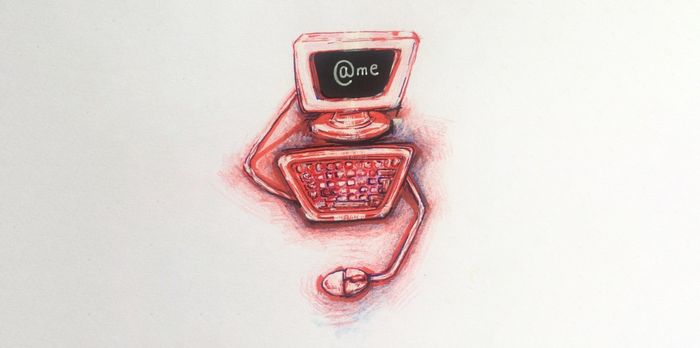Why I started meditating, and why there is little chance that I will ever stop
Agnes Ganet never thought she would meditate, but this year things have changed, and there’s no looking back

At first, I was daunted by the thought of writing this article. As I finished the first draft, I was suddenly overcome by a nagging worry : mindfulness and meditation are anything but original topics. And besides, I am nowhere near being qualified enough to write about it, as this is something I started just a few months ago. However, not mentioning it in any of my chronicles felt absolutely wrong; simply because along with oatmeal, cooking and proper breaks, meditation is a habit I picked up while in Cambridge and which I am confident I will forever keep. So, despite everything that’s been published about it, I cannot help but share my personal experience of mindfulness and meditation, namely how I got here and what it has taught me.
Meditation, which is a way to reach mindfulness, was one of those things I was dying to try but never did because I ‘did not have the time’ (which actually says a lot about how badly I needed this). I had heard the most positive things about it, with many people claiming it is life-changing. Once again, quarantine played a major role in building what now became part of my daily routine. Back in September, I did not have much work to do, and so I had around fourteen days to do whatever I wanted (within reason of course).
“Needless to say, meditating was too great an opportunity to miss”
Needless to say, meditating was too great an opportunity to miss. I had literally no idea what to start with: starting on my own was an intimidating prospect, as I had the misconception that meditation was just about sitting cross-legged with your eyes closed while trying not to think about anything. It sounded odd, and basically impossible, and that is probably the reason why it took me so long to start. And so I started to do some research and ended up on YouTube which features many recorded meditations. I opted for ten to 15-minute meditations to start with, as 30 minute-long sessions simply seemed inconceivable to me at the time. I soon discovered that meditation and mindfulness can be achieved through a wide array of techniques including body scan, focusing on breathing and paying attention to sounds.
The uniting factor among these techniques is that they aim to make sure you are fully engaged with whatever you are doing. The chances are than in practising regularly, you will subsequently remain more easily focused in any situation. Quite frankly, I enjoyed it from the start. The mere idea of knowing that there is at least one moment a day where I literally do nothing and yet feel so fulfilled, from a psychological point of view, seemed almost too good to be true. And yet it worked. From the start, I was amazed at how serene and calm I felt after the sessions. It did not necessarily have long-lasting effects right away, but whenever I felt stress looming, a meditation session promptly put an end to it. But then quarantine ended, and for a few days, I got caught up in my busy life again, and meditation was no longer part of it. Strangely enough, I realised that I felt much more stressed, and this impression still holds true today, as the (rare) periods during which I stop meditating coincide with those during which I feel particularly overwhelmed.
“I always felt like I lived in a temporality that was either the past or the future, but which was never truly mine”
I don’t believe that this is a coincidence, as I quickly noticed that I do not overthink as much as I used to. When walking in Cambridge, when doing the dishes, when cleaning my room, I now get to actually focus on those activities instead of my next essay, and so I enjoy them much more than I used to. Meditation helped me to become aware of apparently insignificant moments I did not pay attention to in the past, things we all take for granted and which yet are wonders. In focusing and being more aware, not only do I appreciate these things even more, but I also find myself much more present, in the present.
I always felt like I lived in a temporality that was either the past or the future, but which was never truly mine. Reconnecting with my present was therefore essential, as I felt I was a judge of my life instead of being the actual actress of it. Now I could not possibly end this article without mentioning two essential sources of inspiration, which are none other than the mindfulness workshops organized by the University of Cambridge as well as the Mindfulness Society. I learnt a lot from them and who knows, maybe you’ll be next ?
 Features / Should I stay or should I go? Cambridge students and alumni reflect on how their memories stay with them15 December 2025
Features / Should I stay or should I go? Cambridge students and alumni reflect on how their memories stay with them15 December 2025 News / Cambridge study finds students learn better with notes than AI13 December 2025
News / Cambridge study finds students learn better with notes than AI13 December 2025 News / Dons warn PM about Vet School closure16 December 2025
News / Dons warn PM about Vet School closure16 December 2025 Comment / The magic of an eight-week term15 December 2025
Comment / The magic of an eight-week term15 December 2025 News / News In Brief: Michaelmas marriages, monogamous mammals, and messaging manipulation15 December 2025
News / News In Brief: Michaelmas marriages, monogamous mammals, and messaging manipulation15 December 2025









